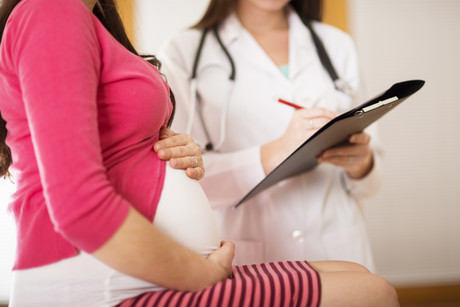Lead poisoning is the top risk factor for pre-eclampsia, says study

Griffith University researchers have found that lead poisoning is a major risk factor for pre-eclampsia, a disease which kills over 75,000 women internationally each year and is responsible for 9% of all foetal deaths.
Pre-eclampsia is a silent killer in which pregnant women develop high blood pressure and protein in their urine due to kidney malfunction, potentially leading to cardiac and/or kidney failure and eventual disability or death. Previously established risk factors include obesity, prior hypertension, older age and diabetes mellitus; now, the Griffith researchers have added to this list.
Published in the journal Environmental Research, the Griffith study reviewed the results of 11 previous international studies that measured blood lead levels of pregnant women who experienced pre-eclampsia and control groups of women who did not experience pre-eclampsia. The team found that blood lead levels are the strongest predictor of whether a pregnant woman will develop pre-eclampsia.
“We found that the link between high blood lead levels and pre-eclampsia is twice as strong as the risk from diabetes and is as big a risk as chronic high blood pressure,” said Dr Arthur Poropat from Griffith Health.
“There is a clear dose-response relationship between maternal blood lead and pre-eclampsia: doubling the blood lead level results also doubles the risk of pre-eclampsia. Even relatively low levels of lead increase the risk of the condition.”
Dr Poropat said women are exposed to lead in many ways, including through lead paint, lead-contaminated soils, lead water pipes, shooting lead bullets at firing ranges and other sources. They can even be exposed by handling or washing their spouse’s lead-contaminated clothes.
“Fortunately, most people in Australia are not at risk of lead poisoning as they are not commonly exposed to lead via their occupation or the environment,” Dr Poropat said. “However, there are certain well-documented risk areas within the country, including the industrial regions of Broken Hill (NSW/SA), Mount Isa (Qld) and Port Pirie (SA).
“Regardless of where women are located or their lifestyle, women should be aware of the risks associated with lead poisoning if they are preparing to become pregnant or are currently pregnant.
“Following exposure, the body struggles to get rid of lead, and 90–95% of the lead becomes stored in human bones. Tragically, when mothers’ bones release calcium during pregnancy to help the foetus grow, lead is also released from the bones, resulting in the mother exposing herself and her foetus to lead.
“However, calcium supplements can reduce blood pressure risks in pregnant women, which may be partly because higher calcium reduces the amount of lead released from bone.”
Dr Poropat said doctors should actively consider giving calcium supplements to women at risk of lead contamination, while women themselves should do what they can to avoid exposure.
“We recommend that pregnant women with blood lead levels above 5 micrograms per decilitre should be actively monitored for pre-eclampsia,” he added.
Liquid catalyst could transform chemical manufacturing
A major breakthrough in liquid catalysis is transforming how essential products are made, making...
How light helps plants survive in harsh environments
Researchers from National Taiwan University have uncovered how light stabilises a key...
SKA-Low's first image of the universe released
The image is an indication of the scientific revelations that will be possible with the...




